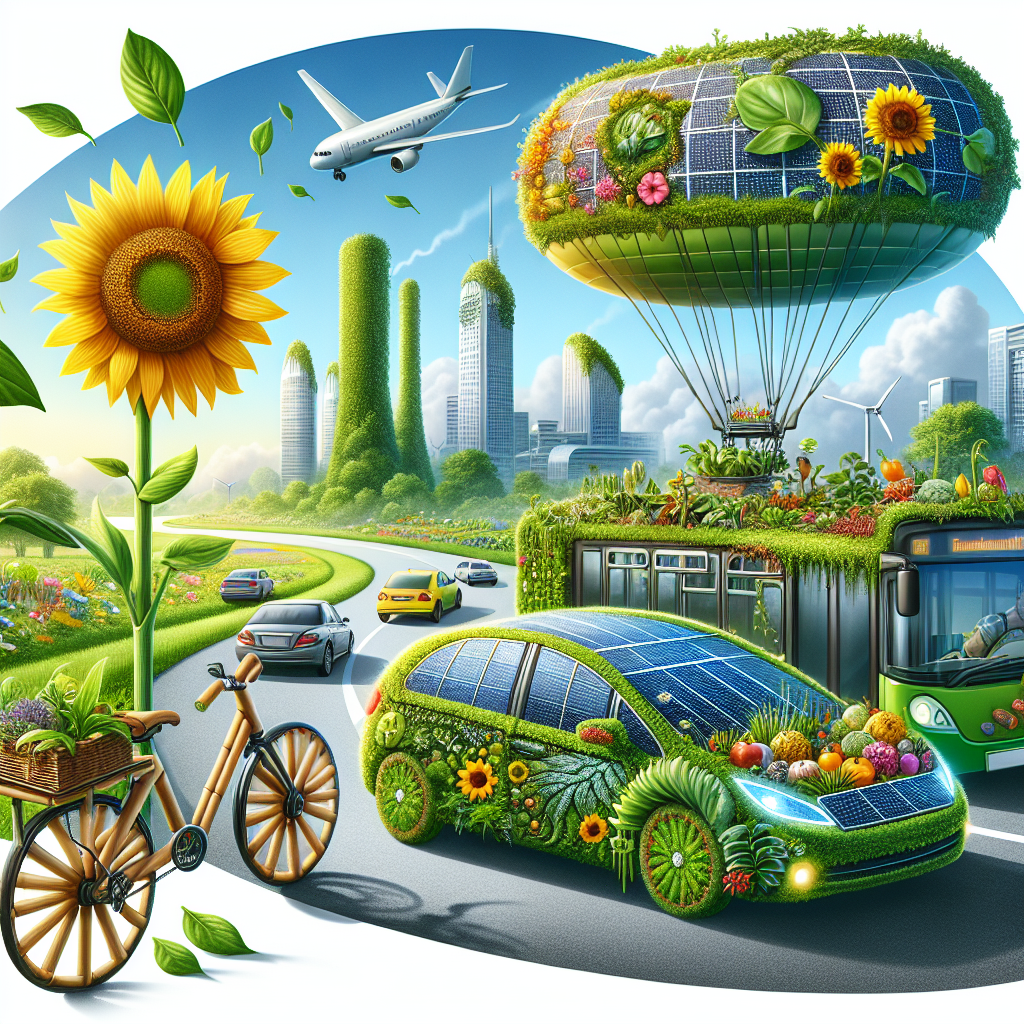As our world becomes more aware of the impact of climate change, there has been a growing emphasis on sustainable travel and eco-friendly transportation options. The rise of green vehicles and advancements in eco mobility technology have opened up exciting possibilities for reducing our carbon footprint while still enjoying the convenience of modern transportation.
One of the most notable innovations in sustainable transportation technology is the development of electric vehicles (EVs). These vehicles run on electricity rather than gasoline, which significantly reduces greenhouse gas emissions. EVs come in various forms, from compact cars to SUVs and even trucks. With improvements in battery technology, EVs now have longer ranges and faster charging times, making them a practical choice for everyday use.
Another promising development is the rise of hydrogen fuel cell vehicles. These vehicles use hydrogen gas to power an electric motor, emitting only water vapor as a byproduct. While infrastructure for refueling hydrogen fuel cell vehicles is still limited compared to EV charging stations, companies are working to expand this network to make these vehicles more accessible to consumers.
In addition to alternative fuel sources, advancements in autonomous driving technology are also shaping the future of sustainable transportation. Self-driving cars have the potential to reduce traffic congestion and accidents while optimizing energy efficiency through smoother driving patterns. As this technology continues to evolve, we may see a shift towards shared autonomous vehicles that further reduce the need for individual car ownership.
Beyond personal transportation, innovations in public transit are also contributing to eco mobility. Cities around the world are investing in electric buses and trains powered by renewable energy sources. Some cities are even experimenting with innovative solutions like aerial gondolas and bike-sharing programs to provide sustainable alternatives to traditional modes of transport.
It’s not just about the vehicles themselves – sustainable travel also includes infrastructure improvements that support greener transportation options. Bike lanes, pedestrian-friendly streets, and smart traffic management systems all play a role in creating a more sustainable urban environment. By designing cities with sustainability in mind, we can encourage more people to choose eco-friendly modes of transportation.
Of course, transitioning to sustainable travel isn’t without its challenges. Cost barriers, range anxiety for EVs, and resistance from traditional automotive industries all present obstacles to widespread adoption of green vehicles and eco mobility solutions. However, as awareness grows and governments implement policies that incentivize sustainable transportation choices, we can expect these challenges to diminish over time.
As consumers become more conscious of their environmental impact, there is a growing demand for greener transportation options. Companies like Tesla, Toyota, and Nissan are leading the way with their electric vehicle offerings, while startups like Rivian and Nikola Motors are pushing boundaries with innovative approaches like electric trucks and hydrogen-powered semis.
In conclusion, the latest innovations in sustainable transportation technology offer exciting opportunities for reducing our carbon footprint while still enjoying the convenience of modern travel. From electric vehicles to autonomous driving systems, cities around the world are embracing eco mobility solutions that prioritize environmental sustainability and improve quality of life for residents and visitors alike.

Leave a Reply